Somalia
Millions of people in over a dozen countries in the Horn of Africa and southern Africa are facing the peak effect of severe drought that hit the regions resulting in famine.
Worst among the countries are Somalia, South Sudan, and Nigeria in West Africa who are part of the more than 20 million people estimated by the United Nations to be facing severe famine and starvation in the world.
The World Health Organisation (WHO) warned that Somalia is at risk of its third famine in 25 years after the previous crisis in 2011 that killed about 260,000 people.
#EastAfricaCrisis pic.twitter.com/ppl8cPalhZ
— Ladan Asli (@WitchOfBari) August 19, 2014
The Horn of Africa is facing its third consecutive year of drought causing thirst and hunger, decimating livestock, destroying livelihoods, spreading disease and triggering large scale population movements.
Somalia’s neighbour Kenya is also facing drought in half of the country – 23 of its 47 counties nationwide.
United Nations humanitarian chief Stephen O’Brien described the crisis to the Security Council as the largest since the second world war in 1945, and an amount of $4.4 billion is needed “to avert a catastrophe” in Somalia, South Sudan, Nigeria and Yemen in the Arabian Peninsula.
For the other drought-ridden countries including Lesotho, Madagascar, Malawi, Mozambique, Namibia, South Africa, Swaziland, Tanzania, Zambia and Zimbabwe, the Food and Agriculture Organization (FAO) launched an appeal last year for emergency aid estimated at 109 million dollars to cover 23 million people.
Source of the Crisis
The U.N. humanitarian chief Stephen O’Brien clearly stated after a visit that the famine in South Sudan is man-made due to the three-year civil war in the world’s newest country which is facing a worse situation.
Like South Sudan, the famine in northeastern Nigeria is as a result of the seven-year insurgency of the Islamist sect Boko Haram killing over 20,000 people and with at least 2.6 million people displaced and 5.8 million in dire need of humanitarian aid.
The Horn of Africa countries are facing their third consecutive year of drought.
Ethiopia is experiencing below average rains in the southern and eastern parts of the country caused by the negative Indian Ocean dipole and La Niña leading to drought.
This is a repeat of last year when drought caused by the El Niño climate phenomenon left 10.2 million people hungry and several hundred thousand of animals killed.
Somalia is also facing the brunt of the climate change coupled with the Islamist group al-Shabaab insurgency which is battling the UN-backed government for over a decade.
According to the U.N., 6.2 million people in Somalia need humanitarian assistance and protection, including 2.9 million who are at risk of famine and require immediate help.
During the previous famine in 2011, humanitarian response was slow and nearly 260,000 people died before the famine was officially declared in July.
For Kenya, the climate change is causing drought which is affecting 23 of its 47 counties in the country.
The ten southern Africa countries (Lesotho, Madagascar, Malawi, Mozambique, Namibia, South Africa, Swaziland, Tanzania, Zambia and Zimbabwe) are also facing the brunt of the El Niño climate phenomenon.
The Need and the Needy
Internal Efforts
South Sudan
The South Sudanese government declared famine in two regions of the East African country where more than 100,000 people do not have access to food.
The declaration was backed by three UN agencies: Food and Agriculture Organisation, Unicef and the World Food Programme.
Despite support offered by international aid agencies, some government officials are accused of blocking agencies from delivering food aid to some parts of the country.
President Salva Kiir promised last month to grant access to major NGOs that will provide food assistance to the hunger-stricken civilians. But, they in-turn hiked work permit fees 100-fold for foreign aid workers to $10,000 dollars from $100.
Somalia
Somalia’s President Mohammed Abdullahi Mohammed ‘Farmajo’ declared the ongoing drought in the country a national disaster to address the humanitarian emergency in all affected areas.
He called on small businesses in the country and nationals in the diaspora to contribute in avoiding a disaster.
Kenya
Kenya has also declared the drought a national disaster and called for local and international support of the government to contain the situation.
The Kenyan government has pledged US$99 million to support national drought response efforts.
The government also set aside about $1.5m to be disbursed to various institutions in the country to bolster the school feeding program in parts of the country experiencing drought.
Ethiopia
The Ethiopian government has been distributing food aid to areas hit by the drought. Addis Ababa has gone as far as send food aid to Somaliland last month.
Northeastern Nigeria
The government of Nigeria announced in May 2016 the disbursment of $41 million to rebuild and implement support programmes for about 1.8 million refugees in the Internally Displaced Camps (IDPs).
In July 2015, President Muhammadu Buhari established a Presidential Committee on North-East Interventions (PCNI) to coordinate domestic and international humanitarian efforts, but as of July 2016, the committee had still not been inaugurated.
In December last year, He accused the UN and aid agencies of deliberately exaggerating the humanitarian crisis to get more funds.
The Borno State governor Kashim Shettima in January accused some aid agencies of wasting funds meant to help victims of the Islamist Boko Haram insurgency and concentrating too much on the IDP camps instead of recovery, reconstruction and rehabilitation.
He however singled out some aid agencies as doing good including the World Food Programme (WFP), the International Committee of the Red Cross, the International Organization for Migration, the Norwegian Refugee Council and the Danish Refugee Council.
Zimbabwe
Zimbabwe is awaiting a $1.6 billion aid package which will be used to pay for grain and other food items.
African Efforts
Uganda is now host to over 780,000 South Sudanese refugees with an average of 2,500 crossing the border every day to escape attacks and hunger, according to the UNHCR.
President Museveni has been commended for his country’s response to the humanitarian crisis despite Uganda’s own food crisis which is not at alarming proportions due to adoption of new agricultural practices spearheaded by the government.
A few is being done from Africa as against the vibrant campaigns ongoing outside the continent to support aid organisations.
International Appeals
Pope Francis last month called for urgent humanitarian aid for the starving people of South Sudan, saying millions risk being condemned to death by famine.
Turkish President Recep Tayyip Erdogan launched an aid campaign to help the four East African countries hit by the acute drought including Kenya, Ethiopia, South Sudan, Somalia and Yemen.
The World Bank Group President Jim Yong-Kim announced that the bank was working towards raising 1.6 billion dollars to build social protection systems to end the food insecurity in sub-Saharan Africa and Yemen.
The Queen of England is making a personal donation towards helping those facing starvation in East Africa while the UK government has pledged to match public donations pound for pound, up to £5 million.
Prime Minister Theresa May: 'We will match pound for pound the first £5 million donated by the public to
— DFID (DFID_UK) March 15, 2017decappeal#fightingfamine #UKaid pic.twitter.com/5O32tyJTru
The aid is facilitated by UK’s Disasters Emergency Committee’s (DEC) East Africa Crisis Appeal bringing together 13 aid agencies to aid 16 million people in Somalia, Kenya, Ethiopia and South Sudan.
800,000 children under 5 are severely malnourished. They can't wait. Don't delay, donate: https://t.co/iTiSGV2GI6 #FightingFamine pic.twitter.com/o0KDyVnmRC
— DEC (@decappeal) March 15, 2017
Celebrity Appeals
Four-time Olympic champion, British runner Sir Mo Farah has backed the UK’s appeal as the new ambassador for Save the Children. He is urging people to donate and save the 800,000 children aged up to five who need treatment for severe acute malnutrition in the four east African countries.
French Snapchat star Jerome Jarre, who appeared in “Zoolander 2” started a hashtag #TurkishAirlinesHelpSomalia to get the airline to carry food and water to Somalia since it flies there.
MAINSTREAM MEDIA WON'T TALK ABOUT IT !!!
REVOLTING !!!
LET'S MAKE NOISE !!
pic.twitter.com/iiyQrzyLC9
— JÉRÔME JARRE (@jeromejarre) March 15, 2017
This call was backed by actor Ben Stiller who recorded a video calling on people to donate or spread the word to those who can, to support the millions facing starvation in Somalia and neighbouring countries.
If you have 2 minutes and 20 seconds check this out. #TurkishAirlinesHelpSomalia pic.twitter.com/r0u3xh5spG
— Ben Stiller (@RedHourBen) March 15, 2017
American Football (NFL) quarterback Colin Kaepernick also joined the call to action by posting an Instagram video asking followers to make videos in support of sending aid via Turkish Airlines in their own languages.
Via
— KnowYourRightsCamp (yourrightscamp) March 15, 2017kaepernick7: Mainstream media is not covering this! Make a video in your own language and help us get... https://t.co/FgtWPt439u pic.twitter.com/VvYmbcGPDM
Turkish Airlines responded to the tweets by the celebrities on Thursday saying: “We love Somalia. We got the call for this meaningful flight.” They added that they are in talks with the celebrities to offer a flight to Somalia with food aid.
We ❤Somalia. We got the call for this meaningful flight.
— Turkish Airlines (TurkishAirlines) March 16, 2017jeromejarreredhourbenELJuanpazurita#TurkishAirlinesHelpSomalia
Individual Appeals
There are other hashtags urging people to donate towards the crisis. These include: #EastAfricaCrisis where people tweet their contribution or encourage others to donate.
I've just #donated to
Oxfam#eastafricacrisis via nectar – you can use your points now! pic.twitter.com/x6k5zuvekk— Samantha Orchard (@SammyO84) March 16, 2017
We have the chance to save lives now. Please follow and support
— Kimmy the tiger (kimmy_tiger) March 10, 2017ActionAidUK#EastAfricaCrisis ❤
How to Donate
There are dozens of aid agencies taking donations from cash to kind to help support the countries affected by famine caused by drought and conflict.
Among them are: World Food Programme (WFP), the International Committee of the Red Cross, the International Organization for Migration, the Norwegian Refugee Council and the Danish Refugee Council.
UK’s Disasters Emergency Committee is taking donations for all the affected East African countries.
You can however make donations targeting specific countries through aid agencies listed below.
South Sudan
UN Office for the Coordination of Humanitarian Affairs (Ocha), Care, Oxfam, British Red Cross, Cafod, Tearfund, Christian Aid, World Vision, WFP, UnicefNigeria
Save the Children, Christian Aid, Street Child, ICRC, Unicef, WFPSomalia
Ocha, World Vision, MSF, Concern, WFP



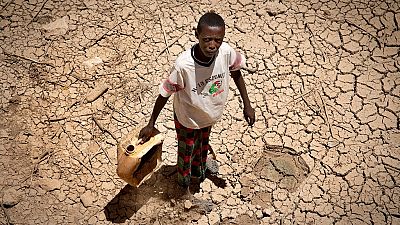

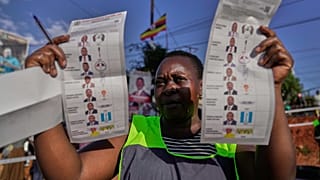

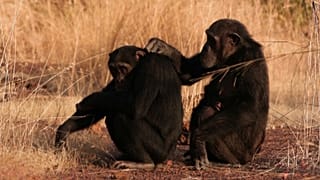
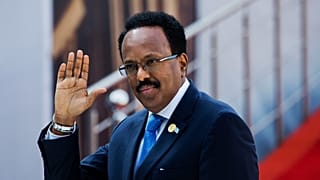
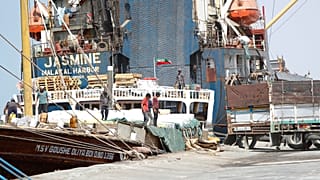
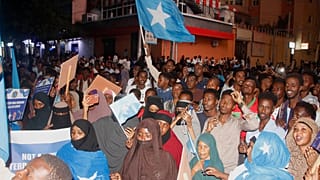


Go to video
New calls for humanitarian truce in Sudan as peace talks resume in Cairo
Go to video
Egypt urges end to Sudan 'bloodshed' during peace coordination meeting in Cairo
01:46
Somalia cancels UAE agreements over sovereignty concerns
Go to video
Facts about the new Bishoftu Airport set to become Africa’s biggest aviation hub
01:13
Construction gets underway in Ethiopia on 'Africa's biggest airport'
00:53
United Nations says more than 50 Congolese refugees have died in Burundi